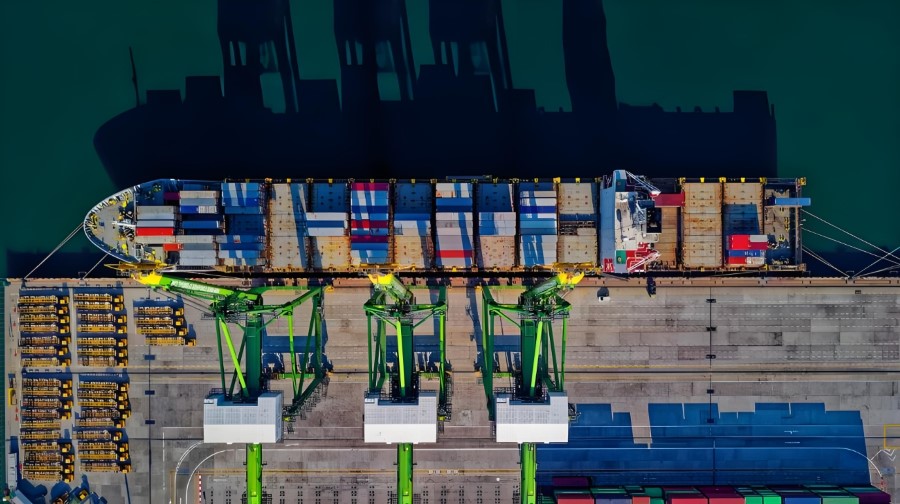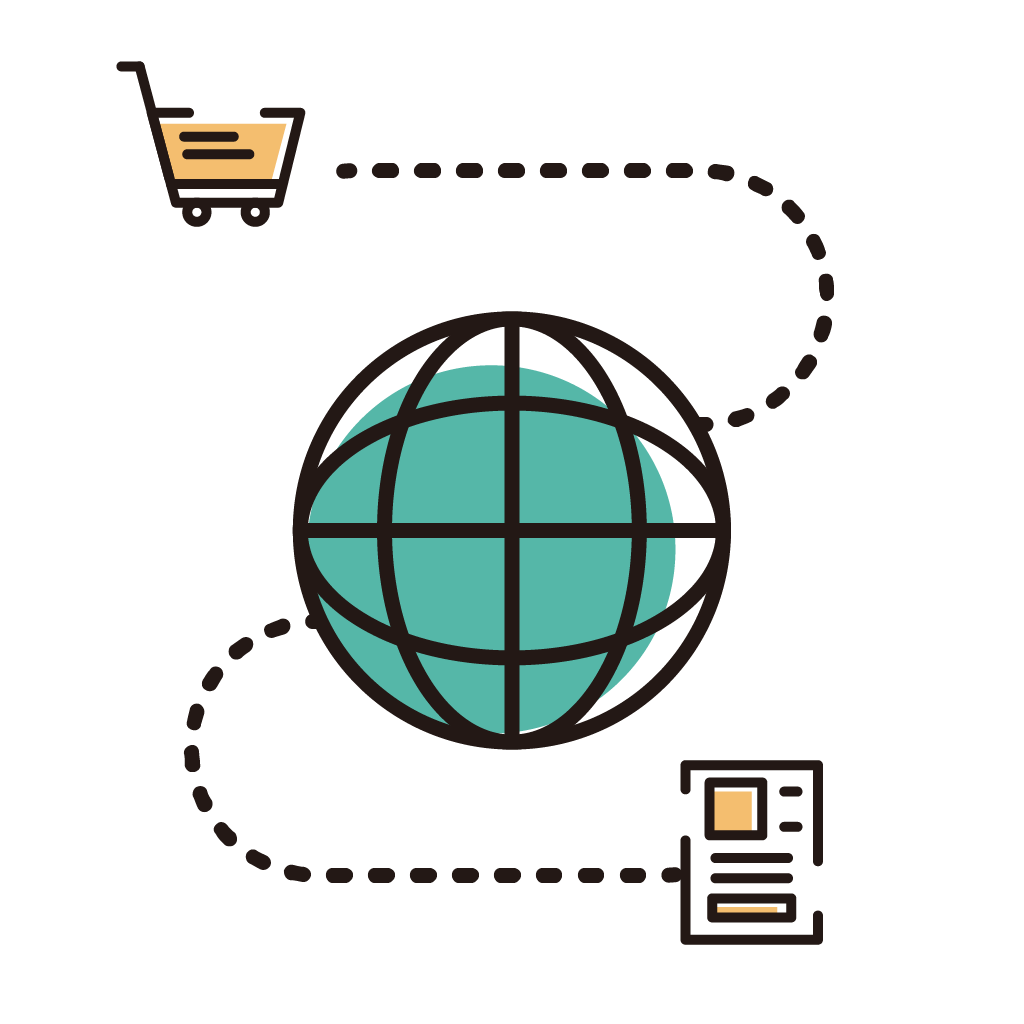In the fast-moving world of international shipping, the ability to track goods in real-time has transformed logistics management. From manufacturers to retailers, everyone in the supply chain can now monitor shipments as they travel across the globe. Real-time global logistics tracking provides visibility, accuracy, and transparency like never before, allowing businesses to operate more efficiently and satisfy their customers with faster, more reliable service. Let’s explore how this technology is revolutionizing international shipping and the key features that make it indispensable.

1. Complete Visibility Across the Supply Chain
The most significant advantage of real-time logistics tracking is the complete visibility it provides across the supply chain. With GPS tracking and advanced monitoring software, businesses can pinpoint the exact location of their shipments at any given moment. Whether it's cargo on the open seas, freight moving by rail, or packages in the air, real-time tracking allows companies to know precisely where their goods are and predict arrival times with incredible accuracy.
This visibility extends to every link in the supply chain, from the manufacturer to the final destination. It enables logistics teams to react swiftly if issues arise, like delays, rerouted shipments, or customs holdups, by providing actionable insights based on live data.
2. Enhanced Customer Satisfaction
Today’s customers expect fast and reliable shipping, especially when ordering internationally. Real-time global logistics tracking enables businesses to meet these expectations by offering transparency and predictability. Customers can track their orders in real time, providing them peace of mind and a sense of control over their deliveries. Knowing when a shipment will arrive, down to the hour, helps customers plan accordingly, enhancing their overall experience.
Additionally, if there are delays or changes, customers can be immediately notified, reducing frustration. Providing accurate tracking information builds trust and loyalty, as customers appreciate a business that values their time and communicates effectively.
3. Proactive Problem Solving
In the unpredictable world of international shipping, delays can happen due to various reasons—weather conditions, port congestion, or customs issues. Real-time tracking allows businesses to be proactive rather than reactive when such disruptions occur. By having up-to-the-minute data, logistics teams can identify potential issues before they become critical problems.
For example, if a shipment is delayed due to a storm at sea, real-time tracking lets the logistics team know immediately, so they can alert customers and make alternative arrangements. This proactive problem-solving helps maintain smooth operations, reduce downtime, and keep customers satisfied even when unforeseen events occur.
4. Optimized Shipping Routes
Real-time tracking also plays a vital role in optimizing shipping routes. Logistics companies can use real-time data to determine the fastest, most efficient routes for shipments. By monitoring traffic patterns, weather conditions, and port schedules, companies can adjust routes on the fly to ensure the timely delivery of goods.
This ability to make real-time decisions leads to significant cost savings and improved efficiency. For instance, if a port is heavily congested, rerouting a ship to a nearby port can save valuable time and prevent delays. By optimizing shipping routes based on live information, businesses can lower fuel costs, reduce emissions, and speed up delivery times.
5. Greater Security and Risk Management
One of the often-overlooked benefits of real-time global logistics tracking is enhanced security. Tracking shipments in real-time not only provides visibility but also helps prevent theft and tampering. With tracking systems in place, businesses can set geofencing alerts, which notify them when a shipment deviates from its planned route, ensuring that goods remain secure throughout transit.
Moreover, real-time tracking improves risk management by allowing companies to monitor high-value shipments closely. In the case of theft or loss, tracking data can provide critical information for recovering goods or identifying where the issue occurred.
6. Data-Driven Decision Making
Real-time logistics tracking doesn’t just provide live updates on shipment status; it also generates valuable data that businesses can analyze to improve operations. By examining historical tracking data, logistics companies can identify patterns, inefficiencies, and bottlenecks in their supply chain. This data-driven decision-making allows companies to optimize processes, reduce costs, and enhance overall performance.
For example, if a business notices that shipments consistently face delays at a particular port, they can investigate the cause and potentially choose an alternative route in the future. Data from real-time tracking systems can also be used to forecast demand, manage inventory more efficiently, and improve supplier relationships by ensuring timely deliveries.
7. Integration with Other Technologies
Real-time global logistics tracking is often integrated with other supply chain technologies to create a more streamlined, efficient process. For example, it can be combined with warehouse management systems (WMS), enterprise resource planning (ERP) systems, and inventory management software, allowing businesses to synchronize data across all their operations.
This integration means that when a shipment leaves the warehouse, it’s automatically updated in the inventory system, and when it reaches its destination, the sales team knows the product is ready for delivery or distribution. This seamless flow of information reduces manual input, eliminates errors, and ensures that all departments are working from the same data.
8. Eco-Friendly Logistics
Sustainability is a growing concern for businesses and consumers alike. Real-time global logistics tracking helps reduce the environmental impact of international shipping by optimizing routes and minimizing fuel consumption. With better route planning and the ability to avoid delays, businesses can cut down on emissions and operate more sustainably.
Additionally, by knowing exactly where shipments are, companies can consolidate cargo more effectively, reducing the number of trips required to deliver goods. This eco-friendly approach not only benefits the environment but also appeals to consumers who prioritize sustainability in their purchasing decisions.
9. Reduced Costs
One of the most significant benefits of real-time global logistics tracking is the potential for cost savings. By optimizing routes, reducing delays, and improving efficiency, businesses can lower their overall shipping costs. Additionally, the visibility provided by real-time tracking helps prevent lost or delayed shipments, which can be costly for businesses in terms of both money and customer satisfaction.
Tracking technology also allows companies to better manage inventory by knowing when shipments will arrive, reducing the need for excess stock or rush shipping to meet demand. With greater control over the entire logistics process, businesses can save on operational costs and improve profitability.
Conclusion
Real-time global logistics tracking is revolutionizing international shipping by providing businesses with unparalleled visibility, control, and efficiency. With features like enhanced customer satisfaction, proactive problem solving, optimized shipping routes, and data-driven decision-making, it’s no wonder this technology has become an essential tool in the modern supply chain.
As global trade continues to expand, businesses that adopt real-time tracking systems will be better equipped to manage the complexities of international shipping, reduce costs, and deliver a superior customer experience. Whether you’re a large corporation or a growing e-commerce business, real-time global logistics tracking is the key to staying competitive and meeting the demands of the global marketplace.























